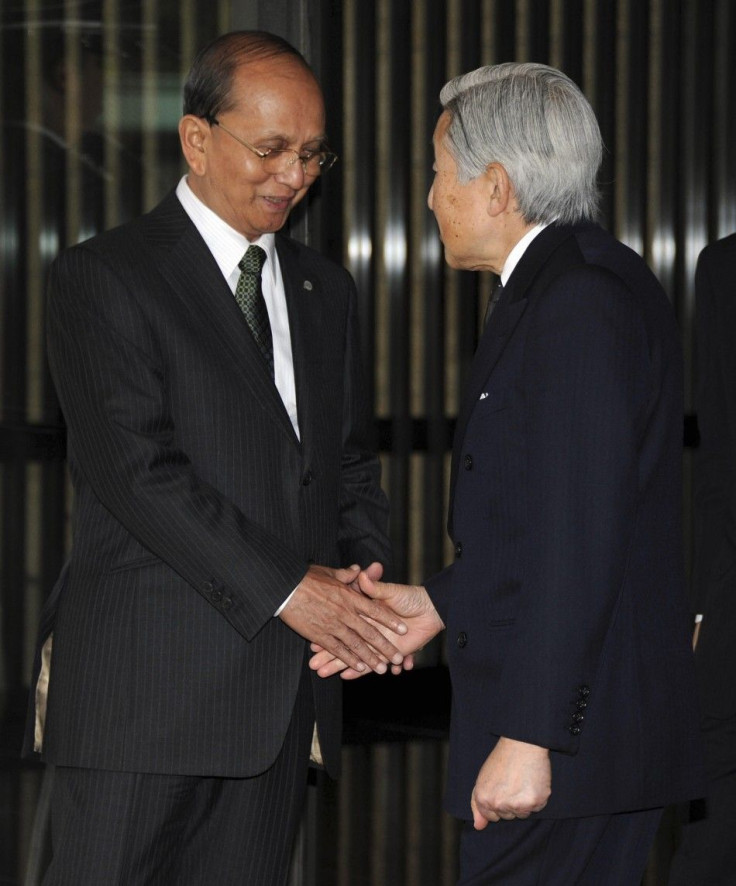Myanmar Seeks Out Japanese Aid To Relieve Debt

Thein Sein, the president of Myanmar (also known as Burma) arrived in Japan on Thursday for a five-day official visit, during which he expects to break a deal for Japan to free Myanmar of 300 billion yen (about $3.7 billion) of its outstanding debt, which represents 60 percent of the country's total debt.
Sein and Japanese Prime Minister Yoshihiko Noda will negotiate a comprehensive solution in which Japan would waive Myanmar's debt, assuming the Southeast Asian nation continues to progress towards democracy.
According to a Reuters' source, Japan is ready to resume low-interest, long-term development loans to Myanmar as it introduces more democratic and economic reforms.
Upon this solution, the Japanese plan to recommence their development aid program to Myanmar, providing infrastructure support for roads, bridges, and ports.
Sein will also meet with Japanese business leaders and visit a couple of thermal power plants, specifically the Tokyo Electric Power Co. and the Electric Power Development Co., said Japan's Foreign Ministry.
Additionally, Sein will attend the 4th Mekong-Japan Summit, which includes Thailand, Cambodia, Vietnam, and Laos, for the second time.
Japan re-opened relations with Myanmar following Japanese Foreign Minister Koichiro Gemba's official visit to the Southeast Asian nation last December. No Japanese official had visited the country since 2002.
Sein's reciprocal visit to Japan this month shows a continuation of Myanmar's willingness to engage with developed countries.
We are going through political and economic changes, and we are also setting up special economic zones. We welcome Japanese corporate investment in this opportunity, the Washington Post reports Sein as saying.
While Japanese exporters have been investing heavily in neighboring Thailand, Burma would also like similar investments. In fact, Japanese businesses themselves are looking to exploit Myanmar's cheap labor, large workforce, and perhaps even abundant natural resources.
Japan is already Myanmar's 12th largest foreign investor, according to Burmese news agency Mizzima.
This is a first step. Many companies have an interest in Myanmar but so far there are not many concrete plans to establish factories, said Yoshito Asano, director of the Japan External Trade Organization (JETRO), according to Bloomberg News.
Honda has announced that it plans to build a motorcycle plant in Myanmar, said Hiroshi Kobayashi, president and CEO of Asian Honda Motor Co., reported Bloomberg News.
China has spearheaded and dominated investment within the Mekong nations. Japan now seeks to play catch up, despite sanction constraints imposed by the United States and the European Union (EU) over human rights violations committed by Burma's military regime.
Nonetheless, the resolution decided during Sein's visit will most likely influence the EU's decision to suspend sanctions on April 23 against Myanmar as a reward of the country's progress towards democracy.
Despite resentment towards the brutal Japanese occupation during WWII, Myanmar sees the building up of Japanese relations as a progressive step towards further economic growth.
© Copyright IBTimes 2024. All rights reserved.











